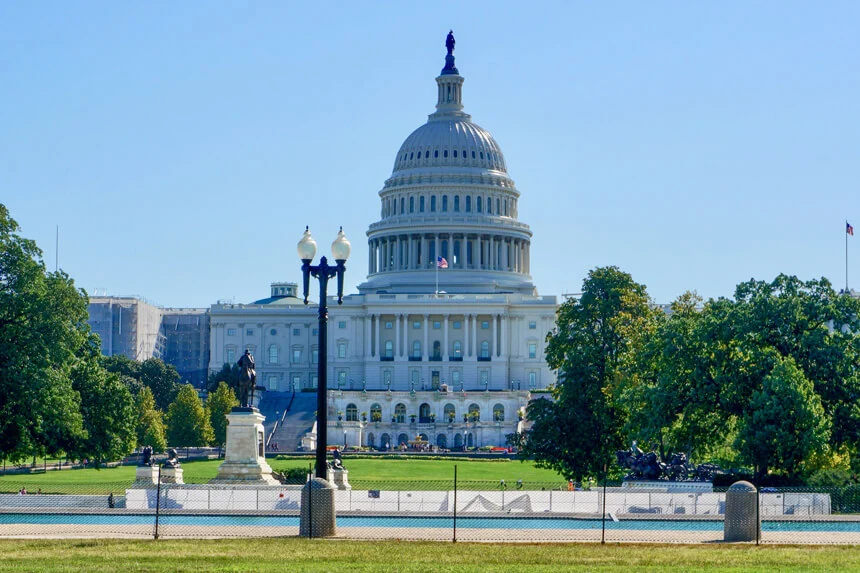The Trump budget bill is a mammoth spending proposal that is locked in heated and protracted debate by the U.S. Senate, and could transform the fiscal agendas of the country. Legislators are scrambling to meet the Independence Day deadline to complete the legislature, yet deep cuts in welfare spending and tax breaks have split the parties wide apart. The 1,000-plus pages of the bill have caused back-to-back amendments and discussion, a so-called vote-a-rama. Though republicans are the majority, the bill has faced threats of internal squabbles threatening its passage. Once passed in the Senate, the legislation still has to go back to the House again, where, in this case, the resistance is also stiff.
- What is so wrong with the Trump budget bill, to the extent of being highly scrutinized by the Senate?
- What are the major provisions of the Trump budget act?
- What is the response of lawmakers towards proposing the welfare cuts?
- Which political currents are playing out in the vote in the Senate?
- Will the bill pass the House of Representatives?
- What are the responses of the Americans to the proposed legislation?
- What do the economic implications of the bill entail?
- How is the passage likely to succeed by the July 4 deadline?
- Final Thoughts
What is so wrong with the Trump budget bill, to the extent of being highly scrutinized by the Senate?
The Trump budget bi,l,l officially titled the One Big Beautiful Bill Act, has sparked off a marathon voting in the U.S Senate. The long, almost 1,000-page proposal is intended to prolong important tax breaks at the center of the economic platform of former President Trump. Nonetheless, it has gained controversial arguments attributable to the proposed public cuts on welfare, as well as rising borrowing as well and implications for future healthcare coverage and national debt.
The negotiation between the senators to complete the bill is high alongside the July 4th self-imposed deadline. The republicans dominate both houses in Congress, but they are highly split on the amount of spending cuts and how much fiscal responsibility they are ready to forego to advance the legacy of Trump. Here is the link to our article on Trump Tariff Reversal
What are the major provisions of the Trump budget act?
The Trump budget bill is also planning on extending massive tax breaks of 3.8 trillion as well as bringing in welfare advantage cuts such as Medicaid. Also, the bill provides a deduction on the benefits, as well as abolishing the tax on overtime wages and tips. The bill also approves a maximum of 5 trillion dollars of new debt to fund these changes- this is raising concerns of fiscal sustainability.
This debt would directly increase the current enormous debt ($36 trillion) still in existence. The critics point to the fact that the legislation runs contrary to the calls of the long-time conservatives on spending restraint. They, however, claim the economic boost and promise fulfillment of campaign promises by supporters of the bill.
What is the response of lawmakers towards proposing the welfare cuts?
The effect of the Trump budget bill on Medicaid is one of the most controversial parts of the budget bill. An amendment that is being proposed is likely to result in almost 20 million Americans lacking health insurance by 2031. Those in favour dilute the impacts felt in the short term, whereas the oppositions highlight the fact that the cuts will have more effect on vulnerable groups.
A minority of the Senate Republicans have declared unease with the size of welfare reductions. In the meantime, Democrats are joined together opposing the bill the bill favours tax cuts on the rich at the cost of poor people accessing health care. They employed procedural gimmicks such as insisting that the bill be read in full, which took 16 hours to set the bill back. Here is the link to our article on Trump Health Cuts
Which political currents are playing out in the vote in the Senate?
TheSenatee is experiencing a vote-a-rama, which is a process that gives infinite amendments and debate. This drastic session will most likely last through the weekend, into the early hours of Tuesday. The republicans can at most lose three votes, and otherwise the bill is lost with no tie vote to flip a tie to become a bill.
Two Republicans have already defected. Senator Thom Tillis announced his retirement. He had voted against the commencement of the debate because he had broken promises to his electorate. The other one was Senator Rand Paul, who voted against it because of the escalation of debt and the harsh cuts Medicaid. With another defection, the party leadership might not be in a position to present the bill.
Will the bill pass the House of Representatives?
Even in the event that the Senate succeeds in passing the Trump budget bill, it will work out in a way that it will have to be returned to the House, which passed a different version of the Trump budget bill last month by a small margin. The Senate revisions have already been met with disapproval by the House Freedom Caucus, which consists of fiscal conservatives. They are saying the new version increases the deficit by more than 650 billion dollars and negates the conservative values.
TopHousee leaders are already planning a floor vote as early as Wednesday. But with these narrow margins and internal diversion, the future of the bill is uncertain. In case additional Republicans voice their objection to the measure, the bill might still collapse even as it tries to rush through before Independence Day.
What are the responses of the Americans to the proposed legislation?
The Trump budget bill has faced a mixed reaction from the people. Its proponents state that it will fulfill its tax pledges and act as a booster to the economy. Critics, however, fear the trade-offs, specifically, a reduction in social safety nets and more debt. There have been advocacy movements which are aimed at creating awareness of the possible implications of the bill, with the foremost implication being its effect on healthcare access. Meanwhile, the internet discussion has grown more heated. Republican leaders who vote in support of the bill have had prominent names threatening to invest in the opposition of such countenance. Ly suggested the creation of a new political party as a reaction to what he terms as uniparty-like behavior by the two major political forces.
What do the economic implications of the bill entail?
Watchdog and economic experts caution that the Trump budget bill will potentially skyrocket the federal deficit. The Congressional Budget Office shows that alterations of the type proposed can result in an additional 3.3 trillion in debt in the future. Secretary of the Treasury Scott Bessent has called upon Congress to be responsible and warned Congress that any lapse in solving the issue of the debt ceiling can make the U.S default on its debts by August.
Nevertheless, not all conservatives in the legislature have lost hope. They also theorize that heightened economic growth, which will result from the tax cuts, will aid in countering the extra borrowing. Other people, including Republicans, however, are not as optimistic as that, hence the various disagreements within the Democratic Party persist.
How is the passage likely to succeed by the July 4 deadline?
Even though it is necessary that the Senate deliver by the July 4 deadline due to its high-stakes nature, it is not certain that it will. The high tempo of negotiations, queuing of procedures, and division of parties indicate that negotiations will take a long time. Nevertheless, pPresidentTrump is certain that the law is going to be passed, and he urged his supporters in Congress to swiftly act.
An effective vote by the Senate would be an important move; nevertheless, it would be only one stage of the whole process. House differences need to be reconciled as well, and both houses have to finally unanimously agree on one version only to pass it into a law afterwards.
Final Thoughts
Lawmakers are under pressure to finish a far-reaching and contentious budget bill, as the outcome of the Trump budget bill is still in the air. With both sides sharply divided and the issues of healthcare, taxes, and the national debt at stake, the Trump budget bill may represent a paradigm shift in fiscal policy for years to come. Controversial or not, the discussion on the passing or failing of the Trump budget bill highlights the everlasting battle between financial growth, societal responsibility, and fiscal restraint.








